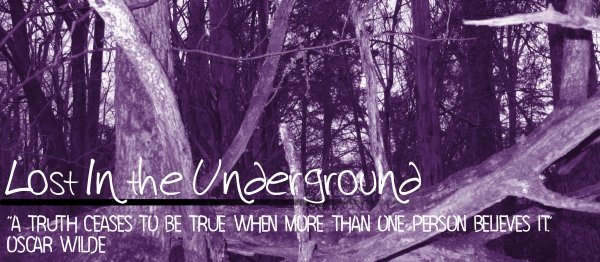"Have you heard -- the word is Love."
The Beatles
"You are the Word -- the Word is Destroy."
Franz Ferdinand
"Зла, добра ли? -- Ты вся -- Не отсюда."
Александр Блок
("Are you good or evil? You are both entirely. Entirely not from here."
Aleksandr Blok, "To the Muse")
So, in the midst of my mistaken foray into Church of Christ discussion boards, I began to meditate on the theological implications of the belief that the Bible is the full, complete, inerrant, and infalliable Word of God.
I'm of the opinion that the Divine, the Eternal, the True, the Good, the Just (pick your personal favorite) is transcendent of the world. Actually transcendent isn't quite the right word here. Its not that the Divine is throughly separate from the world, but more along the lines of the Divine is partially knowable, but beyond full knowledge. The fullness of the Divine is beyond human comprehension. It's whay paradox is important in certain branches of theology. Our logic, our rules, are mocked if you will.
 It's a concept I think is best expressed in the Hindu images of Shiva Nataraja, or Lord Shiva dancing through creation and destruction over the demon of ignorance. Triumph over ignorance is found in paradox.
It's a concept I think is best expressed in the Hindu images of Shiva Nataraja, or Lord Shiva dancing through creation and destruction over the demon of ignorance. Triumph over ignorance is found in paradox.It's hardly a concept that foriegn to Christian theology, but it does seem to a concept that is foreign to evangelical Christian theology. The paradox of Divinity that reminds of that the Divine is beyond our full comprehension, that for any statement we make about the Divine the reverse may also be true, has been reduced to a dry Biblical literalism. Instead of the paradoxes of the Bible, the contradictions (which there are) being embraced as signals pointing us to look beyond human logic and recognize the limits of our own perceptions, any contradiction must be harmonized either through a canon with in a canon reading that prioritizes one view of the Divine, or Divine will, over another, or through clever wordplay that prioritizes human cleverness over a infinitely complex Divine.
And that is why I feel it is so necessary to look for paradox and alternate visions of the Divine. To me it is the most important feature of iconography -- that a religion possesses visual reminders that the Divine has no one single face, but is best represented through many faces.


No comments:
Post a Comment